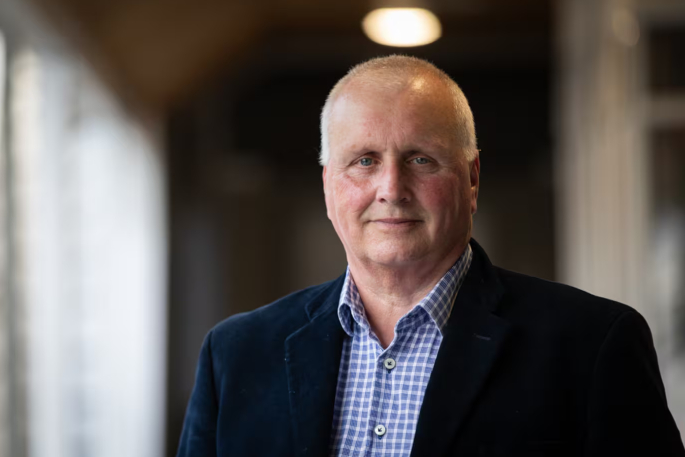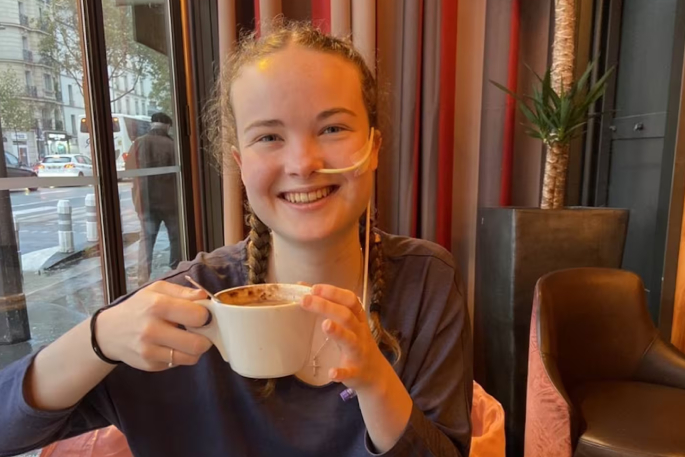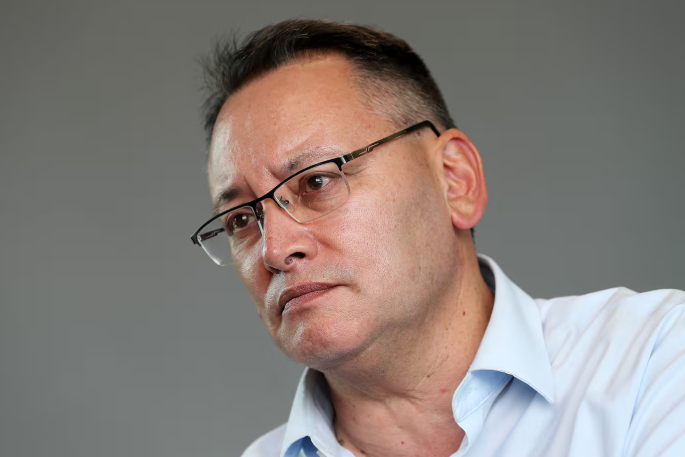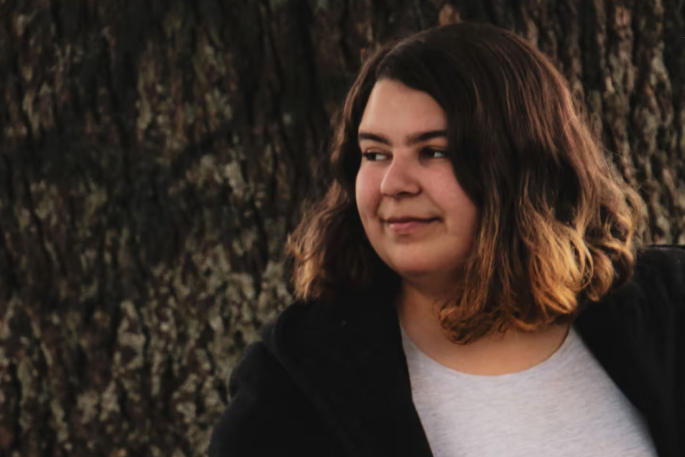When Madison Rose read about a Bay of Plenty mum and a Hamilton teenager struggling to raise money to travel to Germany for surgery on their debilitating abdominal condition, she recognised the struggle.
Madison, a University of Waikato law student, has the same condition - Ehlers-Danlos Syndrome, with comorbidity abdominal vascular compression - but she needs the surgery to be available here.
“I won’t be able to make it to Germany. My only hope for relief from daily nausea, vomiting, abdominal pain and many more symptoms is for [Hamilton vascular surgeon] Dr [Chris] Holdaway to bring the surgery to New Zealand.
“But I just haven’t seen many stories about people with these [abdominal vascular] compressions, or trying to get these compressions diagnosed, who don’t have the financial support available to even consider Germany as an option.”
Married mum-of-two Pam Coburn told the Bay of Plenty Times this monthshe’ll die within five years if she doesn’t pay $180,000 to travel to Germany for surgery, with her only nutrition since 2022 coming from a tube going into her nose and intestines.
She and her husband plan to pay for the surgery by adding to their mortgage, using retirement funds and from a Givealittle page.
And Hamilton teenager Kai Hay, who like Coburn can’t eat, drink or work, told the Times she also “desperately” needs the same surgery but is struggling to save the money via her own Givealittle page.
New Zealand’s small population meant fewer people with rare conditions, and therefore fewer related treatments, Health New Zealand Te Whatu Ora told the Times yesterday.
There was no single surgery to treat the vascular compression conditions.
While one “experimental” surgery in New Zealand could be recommended, creating the high-cost treatment pool – application-based funding for high-cost or overseas treatments – recognised the country couldn’t provide all options available elsewhere, Health NZ says.
For Madison, the first sign something was wrong came just over a year ago, when she lost her appetite and began suffering frequent nausea, vomiting and diarrhoea. Symptoms were so debilitating she went to the hospital emergency department multiple times.
She has polycystic ovarian syndrome and could never lose weight, but was down 14kg in the last year, Madison says.
The 22-year-old now survived almost entirely on a liquid diet, needed an electric wheelchair for distances more than 10 minutes walk, had suffered muscle loss and was forced to switch to part-time study because of fatigue.
“There are days where it just feels so unbearable and hopeless, but something that really helps is my dog, Honey. Even if I feel so down and I don’t want to do anything, I have to walk her and that can help get my spirits up.”
After seeing Chris she was referred for scans, eventually done a few weeks ago under the public health system, Madison says.
“That confirmed one compression syndrome and showed evidence of another one. But I’m awaiting a CT scan to confirm now, and that’s also through the public system. So that’ll probably be a while.”
Ehlers-Danlos Syndrome is a group of connective tissue disorders that are generally inherited, with common characteristics including joints that move more than normal, unusually stretchy skin and fragile tissue with wounds taking longer to heal.
Vascular Compression Syndromes are a group of conditions occurring when blood vessels are under abnormal pressure, restricting blood flow, which can cause weakness and extreme pain.
While a treatment plan won’t happen until her full diagnosis, both Chris and her radiologist indicated she’d likely need the surgery currently offered in Germany, Madison says.
 Dr Chris Holdaway is a vascular surgeon who specialises in abdominal vascular compression syndromes and works privately in Hamilton and Tauranga. Photo / Alex Cairns.
Dr Chris Holdaway is a vascular surgeon who specialises in abdominal vascular compression syndromes and works privately in Hamilton and Tauranga. Photo / Alex Cairns.
Chris, who went to Germany to learn and observe the surgery - which involves wrapping a ringed piece of reinforced polytetrafluoroethylene graft, cut down one side, around the left renal vein to stop it being compressed - wants to bring it to New Zealand, the Times reported today.
There were four major abdominal vascular compressions and the one associated with the left renal vein - known as the “nut-cracker syndrome” - was where 80 to 90 per cent of people with abdominal vascular compressions had trouble, the former Waikato Hospital head of surgery says.
The surgery in Germany, where Kiwis have been travelling and paying more than $100,000 for surgery that may significantly ease their pain, treated this, he says.
Dunedin teenager Olivia Adie and young Auckland woman Freya Dibben are among two who had the surgery in Germany last September, with both saying their lives had greatly improved.
Olivia was back at school, playing hockey and socialising after previously needing a wheelchair and sleeping up to 22 hours a day. She still travels to Auckland and Hamilton regularly for private post-surgery treatment.
“My life is a life now.”
 Dunedin teenager Olivia Adie had surgery for abdominal vascular compression syndrome in September last year. Photo: NZME.
Dunedin teenager Olivia Adie had surgery for abdominal vascular compression syndrome in September last year. Photo: NZME.
Freya says she could eat normally again without pain.
“From not going to school, not eating, not being able to really leave my bed, to living, I would say a very normal life, is just crazy.”
However, Chris says his attempts to introduce the surgery at Hamilton’s private Braemar Hospital and public Waikato Hospital had been unsuccessful, and the Ministry of Health told him it didn’t have jurisdiction to approve the new treatment.
Health Minister Shane Reti’s office says he was taking advice from officials on the next steps after Chris requested a meeting.
 Health Minister Dr Shane Reti is taking advice from officials after vascular surgeon Dr Chris Holdaway asked for a meeting about bringing a new surgery for those with abdominal vascular compression syndrome to New Zealand. Photo / Michael Cunningham.
Health Minister Dr Shane Reti is taking advice from officials after vascular surgeon Dr Chris Holdaway asked for a meeting about bringing a new surgery for those with abdominal vascular compression syndrome to New Zealand. Photo / Michael Cunningham.
She wanted Shane to know there were “so many young people dealing with this” that have no way of raising enough money to travel overseas for treatment, Madison says.
She survives on her student allowance and part-time work as a support worker for a disabled friend.
“I’ve tried Givealittle before, and it just really didn’t get very far. It got me enough for maybe one private appointment. I don’t have much financial support, hence having to work part-time to afford stuff.
“If they keep declining Dr Chris [Holdaway], those of us who don’t have the option to go overseas, for financial or any other reasons, we’re just left trying to manage life with these symptoms to the best of our ability.”



0 comments
Leave a Comment
You must be logged in to make a comment.